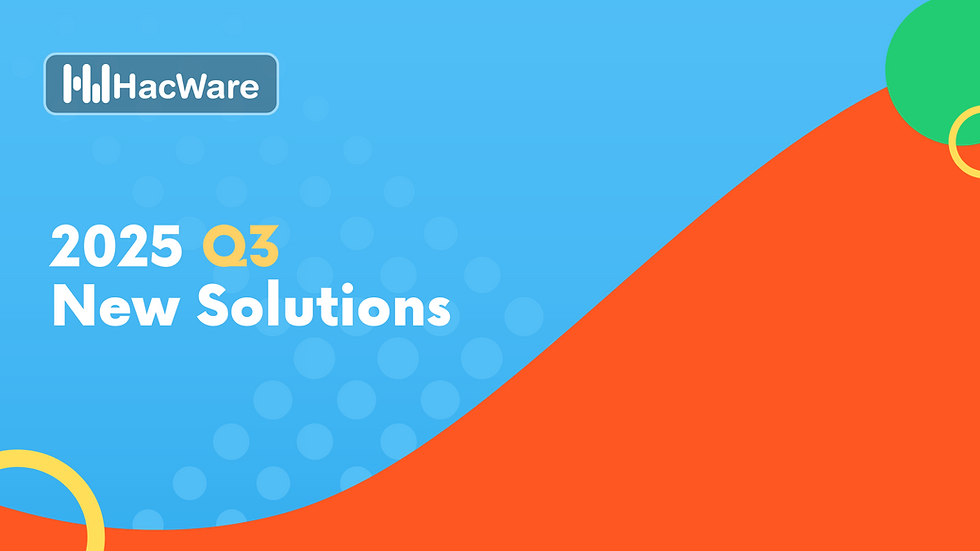Administrative controls feature for phishing simulations
- HacWare Team

- Jan 4, 2023
- 2 min read
Updated: Apr 20, 2023

Automation is our bread and butter, but sometimes you may want to step in and send a specific department or end-user a simulated phishing or smishing (SMS-based phishing) message to test their response and improve their security awareness.
The new feature gives you two options: Quick Campaigns and Controlled Campaigns.
Access this feature by navigating to the Simulations menu and selecting Campaigns from the dropdown. Then select Add New Campaign in the Manage Phishing Campaigns table as shown below.

Then, you can set up these campaigns to directly target your most vulnerable users to identify and improve their security awareness.
Quick Campaigns
Set up a Quick Campaign from the campaigns page by selecting Add New Campaign in the Manage Phishing Campaigns table.
From here you'll select:
The user you’d like to test
The date and time you want the campaign to be sent
The type of simulation to test the user on from the options below:
Link: a simulation containing a suspicious link the user will be prompted to click.
Reply: a simulation attempting to get a user to reply to a message
Attachment: a simulation containing a suspicious attachment the user will be prompted to download.
SMS: a smishing attack sent to the user's mobile device (Super Phish users only)
Dynamic: a dynamically generated campaign based on the users history and the current phishing threat-landscape.
Controlled Campaigns
These campaigns can be sent to multiple users or department-wide. In the Quick Campaign window, toggle to the Controlled Campaign tab to generate a controlled campaign. Select the user(s) and type of simulation you’d like to send from a comprehensive list of attack types.

Then, select the date and time you’d like to send the campaign and schedule your simulation.

This allows for more control over your user’s testing schedule, and an enhanced ability to target and improve on specific vulnerabilities within your and your end-users’ teams.
Learn more about HacWare
If you are a Managed Service Provider (MSP), Managed Security Service provider (MSSP) or IT professional, we would love to automate your security education services. Learn more about becoming a partner!
Learn more about HacWare’s Security Awareness Developer Platform, at the HacWare for Developers page.



